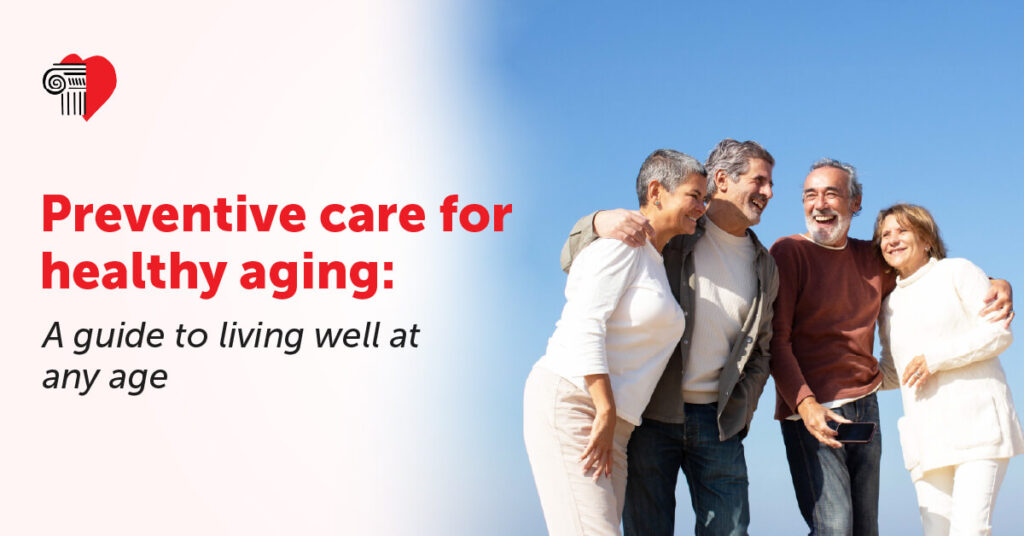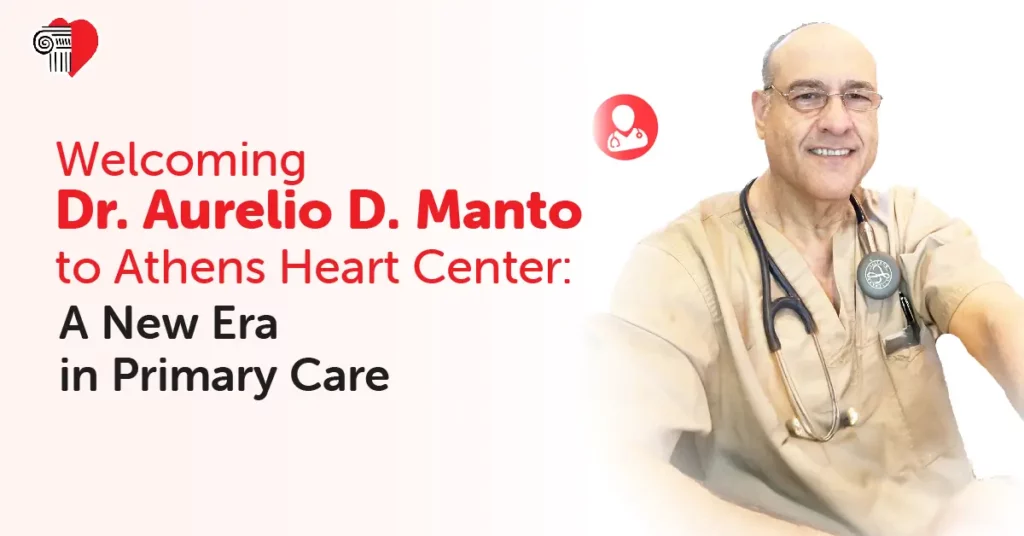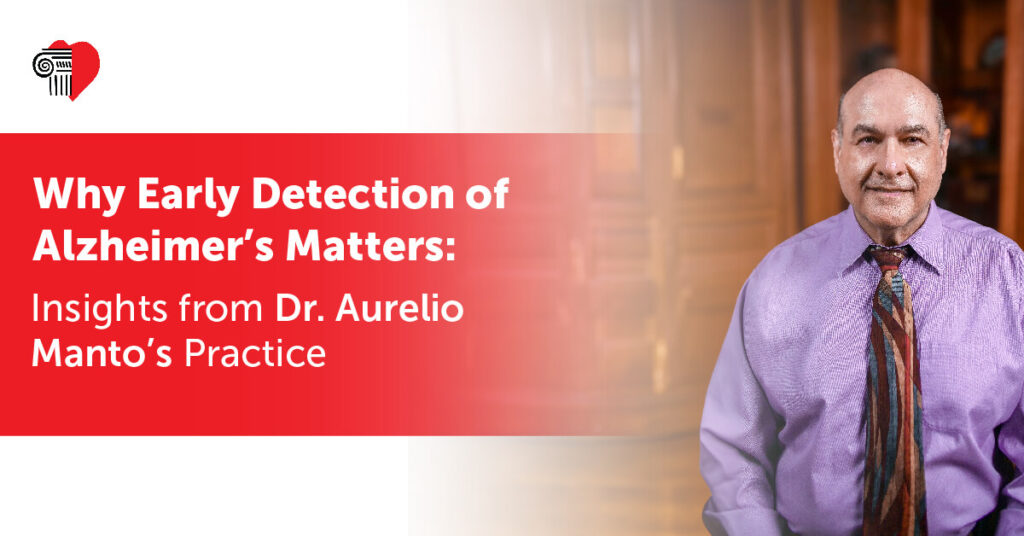
Healthy Aging Starts Here: Preventive Care That Works
Aging is a natural part of life, experiencing it can be shaped by many factors like our lifestyle choices, genetics, and the healthcare we follow. While genes can’t be changed, proactive steps can be taken to ensure a healthier and more fulfilling life as we grow older. Preventive care plays an important role in maintaining our physical, mental, and cognitive health while leading to reducing the risk of chronic diseases.
To enhance the lives of older adults, their families, and communities, the United Nations has declared 2021–2030 as the Decade of Healthy Aging. This initiative focuses on promoting social inclusion, preventive healthcare, and policies supporting later-life health.
What Is Preventive Care?
Preventive care encompasses healthcare practices designed to prevent illnesses or catch health issues early when they’re easier to manage. This includes regular check-ups, vaccinations, screenings, and making healthy lifestyle changes. By putting preventive care first, individuals can boost their quality of life, increase their longevity, and maintain their independence for longer.
The Importance of Preventive Care for Healthy Aging
As we age, our bodies undergo changes that can heighten our risk for conditions like heart disease, osteoporosis, cognitive decline, and mental health issues. However, with the right medical care and lifestyle choices, many of these challenges can be delayed or even avoided. The advantages of preventive care include:
– Early illness detection: Regular screenings can lead to early diagnosis and timely treatment for conditions such as cancer, diabetes, and high blood pressure.
– Lowering medical expenses: Preventing diseases is often more cost-effective than treating them.
– Improving quality of life: Staying active, eating well, and managing stress all contribute to overall well-being.
– Encouraging independence: Preventive measures can help seniors maintain their cognitive and physical abilities.

7 Key Elements for Healthy Aging and Preventive Care
1. Regular Medical Checkups and Screenings
Keeping up with routine visits to your doctor is essential for monitoring your overall health and catching any issues before they escalate. Important screenings to consider include:
– Blood pressure and cholesterol checks: These help evaluate your risk for heart disease.
– Diabetes screening: Particularly important for those with a family history or higher risk factors.
– Bone density tests: To assess osteoporosis risk and help prevent fractures.
– Cancer screenings: Such as mammograms, colonoscopies, and prostate exams.
– Vision and hearing tests: To tackle any age-related sensory declines.
– Cognitive assessments: For the early detection of memory-related conditions like Alzheimer’s.
2. Nutritious Diet and Eating Habits
A balanced diet is vital for both physical and mental health as we age. Here are some dietary guidelines to follow:
– Load up on fruits and vegetables: They’re packed with vitamins, minerals, and antioxidants.
– Choose lean proteins: Options like fish, poultry, beans, and nuts help maintain muscle strength.
– Opt for whole grains: They provide lasting energy and support digestive health.
– Include healthy fats: Found in olive oil, nuts, and fatty fish, these are great for heart and brain health.
– Stay hydrated: Drinking enough water is key to preventing dehydration and keeping your organs functioning well.

3. Staying Active with Exercise
Keeping physically active is one of the best ways to ensure healthy aging. Regular exercise offers numerous benefits, including better cardiovascular health, stronger bones, and improved mood. Here are some activities to consider:
– Aerobic exercises: Walking, swimming, or cycling are great for heart health.
– Strength training: Lifting weights or doing resistance exercises helps maintain muscle mass.
– Flexibility and balance workouts: Yoga and Tai Chi can help prevent falls and enhance mobility.
– Daily movement: Simple activities like gardening, dancing, or stretching can make a big difference.
4. Mental and Cognitive Well-Being
Taking care of your cognitive health is just as crucial as your physical health. Focusing on mental well-being can help ward off depression and cognitive decline. Here are some strategies to consider:
– Stay socially engaged: Keeping in touch with family and friends is important for emotional health.
5. Getting Enough Sleep and Rest
Sleep is crucial for healthy aging, as it supports brain function and overall well-being. Here are some tips to improve your sleep:
– Stick to a regular sleep schedule.
– Develop a calming bedtime routine.
– Steer clear of stimulants like caffeine and screens before hitting the hay.
– Make sure your sleeping environment is cozy and comfortable.
6. Vaccinations and Preventive Medications
Vaccines are essential for protecting against serious illnesses that can worsen with age. Key vaccinations for older adults include:
– Flu vaccine: Get it annually to avoid severe complications from influenza.
– Pneumonia vaccine: Helps lower the risk of pneumonia-related issues.
– Shingles vaccine: Prevents painful outbreaks of shingles.
– Tetanus and pertussis booster: Keeps your immunity up to date.
7. Steering Clear of Harmful Habits
Cutting back or eliminating unhealthy habits can greatly improve long-term health:
– Avoid smoking: It raises the risk of heart disease, lung disease, and cancer.
– Limit alcohol intake: Too much alcohol can lead to liver issues, cognitive decline, and a higher risk of falls.
– Manage substance use: If you’re struggling with addiction or dependency, seeking help is crucial.
How AHCSPC Is Supporting Older Adults with Preventive Care for Healthy Aging
AHCSPC is dedicated to helping individuals manage their health as they age. From routine health screenings to tailored wellness plans, AHCSPC offers a range of healthcare options designed specifically for the needs of older adults.
Preventive Screenings: AHCSPC provides timely health check-ups to catch conditions early and offer proactive treatment options.
Chronic Disease Management: Our specialists are here to help manage chronic health issues like diabetes, heart disease, and osteoporosis.
Nutritionists: AHCSPC offers expert guidance on nutrition to foster a healthy lifestyle that promotes longevity and wellness throughout life.
Mental Health Support: AHCSPC provides counseling and wellness programs for older adults dealing with stress, anxiety, and cognitive health challenges.
Physical wellness programs: At AHCSPC, we provide fitness and rehabilitation sessions tailored for older adults, focusing on enhancing mobility, strength, and balance to support healthy aging.
For expert medical advice, be sure to visit AHCSPC.
Conclusion
Aging healthily is a journey that spans a lifetime and calls for a proactive stance on your physical, mental, and cognitive well-being. Engaging in preventive care—like regular check-ups, maintaining a balanced diet, staying active, and nurturing your mental health—can significantly boost your quality of life. By making thoughtful lifestyle choices and accessing the right healthcare, you can embrace aging with grace and enjoy a vibrant, active life well into your golden years.
So why wait? Start today—your future self will be grateful!




